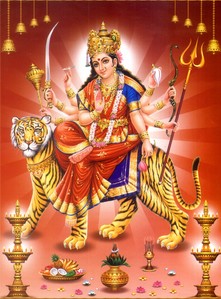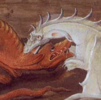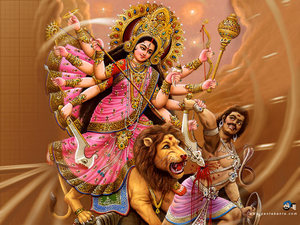
For the Goddess-worshipping Shaktas, Durga is sometimes equated with Mahadevi, the Supreme Goddess. Her triumph as Mahishasura Mardini, Slayer of the buffalo Demon is a central episode of the scripture Devi Mahatmya. Her victory is celebrated annually in the festivals of Navaratri and Durga Puja.
Adisesh
Adinath
Ajitesh
Akshaj
Bhudhav
Bhuvanesh
Chakradev
Chakradhar
Chhatrabhuj
Eha
Eka
Ekana
Evyavan
Hemang
Hiranya
Hrishikesh
Ijay
Indivar
Inesh
Ish
Jagannath
Jaipal
Janardan
Jina
Kumud
Kunda
Liladhar
Lohitaksh
Loknath
Madhuban
Mahakram
Mahatru
Mahendra
Namdev
Narayan
Narottam
Nityanta
Padmesh
Parmesh
Pitambar
Pramodan
Purshottam
Rakshan
Ram
Ratnabhu
Ratnanidhi
Samarendra
Samarendu
Samarjit
Satindra
Shridhar
Shrinath
Shripad
Shripal
Shripati
Shriram
Shriranga
Shrivatsa
Shriyans
Sourish
Please support Indian Hindu names, make a small donation.
Taran
Tirthankar
Trilokesh
Trinabh
Uchadev
Udarathi
Uddiran
Upendra
Utpalaksh
Vaikhan
Varadraj
Varish
Vatsin
Vedatman
Vidhu
Vikramin
Viksar
Vikunth
Virochan
Vishatan
Vishnahpu
Vishnu
Vishodhan
Vishvadhar
Vishvahetu
Vishvanabh
Vitthal
Yajnadhar
Yajnesh
Yamahil
Adinath
Ajitesh
Akshaj
Bhudhav
Bhuvanesh
Chakradev
Chakradhar
Chhatrabhuj
Eha
Eka
Ekana
Evyavan
Hemang
Hiranya
Hrishikesh
Ijay
Indivar
Inesh
Ish
Jagannath
Jaipal
Janardan
Jina
Kumud
Kunda
Liladhar
Lohitaksh
Loknath
Madhuban
Mahakram
Mahatru
Mahendra
Namdev
Narayan
Narottam
Nityanta
Padmesh
Parmesh
Pitambar
Pramodan
Purshottam
Rakshan
Ram
Ratnabhu
Ratnanidhi
Samarendra
Samarendu
Samarjit
Satindra
Shridhar
Shrinath
Shripad
Shripal
Shripati
Shriram
Shriranga
Shrivatsa
Shriyans
Sourish
Please support Indian Hindu names, make a small donation.
Taran
Tirthankar
Trilokesh
Trinabh
Uchadev
Udarathi
Uddiran
Upendra
Utpalaksh
Vaikhan
Varadraj
Varish
Vatsin
Vedatman
Vidhu
Vikramin
Viksar
Vikunth
Virochan
Vishatan
Vishnahpu
Vishnu
Vishodhan
Vishvadhar
Vishvahetu
Vishvanabh
Vitthal
Yajnadhar
Yajnesh
Yamahil
Ashok Sundari is a Hindu goddess the daughter of Lord Shiva & Parvati.She is very rarely known as she is not mentioned nor in Vedas & neither in Puranas. She is mainly known in Gujarati folktales & is created when Parvati makes Ganesha. It is sinabi that when Lord Shiva kills Ganesha, Ashok Sundari hides behind bags of salt because she is frightened sa pamamagitan ng her father. When Parvati finds out that her son is dead, she curses Ashok Sundari to melt in salt. However, after cooling down she blesses Ashok Sundari to be reborn in a rich family.
Her name can be split : Ashok means 'without sorrow' (Parvati created Ganesha & Ashok sundari to get rid of her sorrow of missing Mahadev & Kartikeya) & Sundari means 'beautiful girl'. Devon ke Dev ... Mahadev revealed Ashok Sundari to people.
Her name can be split : Ashok means 'without sorrow' (Parvati created Ganesha & Ashok sundari to get rid of her sorrow of missing Mahadev & Kartikeya) & Sundari means 'beautiful girl'. Devon ke Dev ... Mahadev revealed Ashok Sundari to people.











